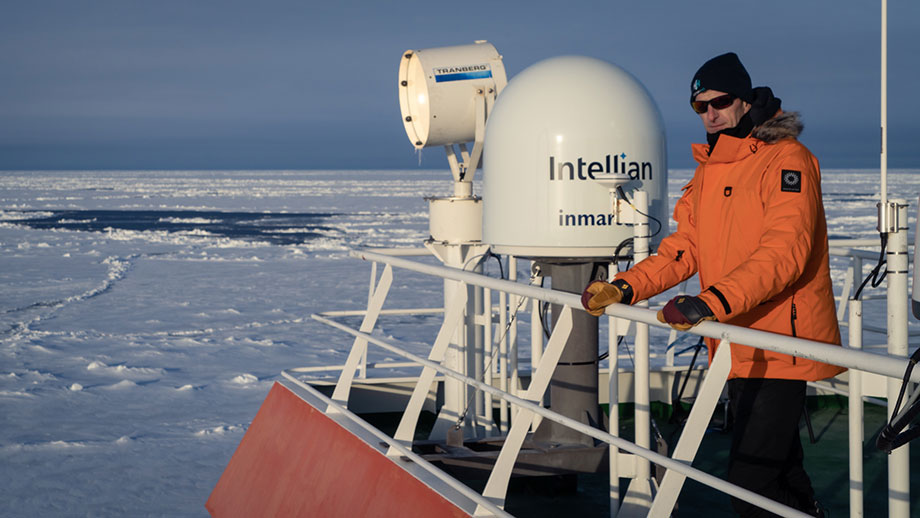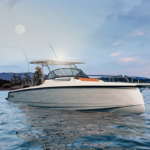Fleet Xpress from Inmarsat provided a high-speed connectivity solution to enable History Hit to broadcast the discovery of Antarctic explorer Sir Ernest Shackleton’s lost ship, Endurance, from the Southern Ocean.
The legendary vessel was found on 5 March – the 100thanniversary of Shackleton’s funeral – 3,008m below the icy surface of the Weddell Sea, bringing the Falklands Heritage Maritime Trust’s Endurance22 expedition to a successful conclusion.
History Hit is the Subscription Video on Demand (SVOD) and content platform co-founded by historian Dan Snow with award-winning digital content agency and media network Little Dot Studios (an All3Media company).
Images captured from the shipwreck by autonomous underwater vessels (AUVs) launched from South African icebreaker Agulhas II were shared online and with global media via Inmarsat’s Fleet Xpress service. Offering high bandwidth and data speeds, the award-winning maritime satellite communications network allowed History Hit and Little Dot Studios to live-stream the discovery with excellent picture quality despite the significant data demands, the remote location and an elevation angle of just four degrees.
“It was vital for us to be able to tell the story of the discovery of the Endurance from Antarctica itself, delivering live interviews to traditional broadcasters worldwide as well as engaging with a huge audience across social media who watched our livestreams and followed along on Tik Tok, Instagram, Twitter, Facebook and YouTube. Inmarsat was key for us to be able to tell the story as it happened, reach a global audience and inspire future generations,” said Nick Birtwistle, Series Producer – Endurance22, Little Dot Studios.
With Agulhas II’s existing onboard communications system reserved for general vessel requirements, Inmarsat provided the onboard crew with a self-contained, standalone solution for the specific purpose of relaying images and video captured by the AUVs. The use of dual communications systems on board a single ship points to a further benefit of Fleet Xpress, which can be configured as the primary or secondary system depending on the operator’s needs and the project objectives.
In supplying the solution, Inmarsat collaborated with two of its partners, Marine Satellite Systems (MSS) and Direct Suppliers CC, to ensure that the system was installed and mission-ready ahead of Agulhas II’s departure from Cape Town, South Africa on 5 February. MSS delivered the hardware, which comprised a compact, 60-cm antenna due to space limitations on board the vessel, while Direct Suppliers handled installation. Inmarsat also supplied a land terminal, the Cobham Explorer 5075 GX, in case the film crew had to disembark and venture onto the ice.
“Sir Ernest Shackleton is a personal hero of mine, so Inmarsat helping to bring the discovery of his famous ship to screens around the world is a dream come true,” said Ben Palmer, President, Inmarsat Maritime. “The quality of the images coming from Agulhas II via History Hit and Little Dot Studios is testament to the speed, bandwidth capacity and extensive coverage of Inmarsat’s Fleet Xpress service.”
As an expert in enabling high-speed communications in remote areas, Inmarsat is also expanding its Arctic coverage through the GX10A and 10B satellites. Due to launch in 2023, the multi-beam, high-throughput payloads are the world’s first mobile broadband satellites dedicated to the High North, where they will provide continuous connectivity to support modern vessel operations in the polar region. The forthcoming ORCHESTRA network will further enhance Inmarsat’s global coverage by seamlessly configuring geosynchronous networks with terrestrial 5G, low-Earth orbit satellites and dynamic mesh networks to offer the fastest average speeds and lowest average latency of any planned or existing network.

















